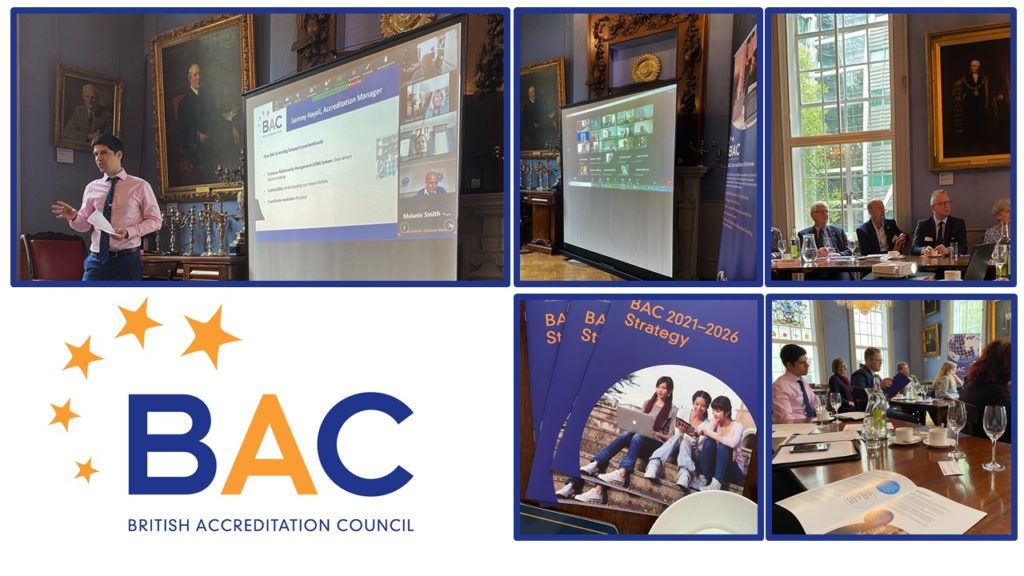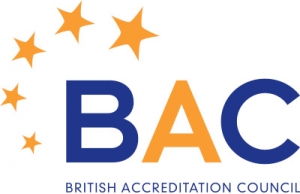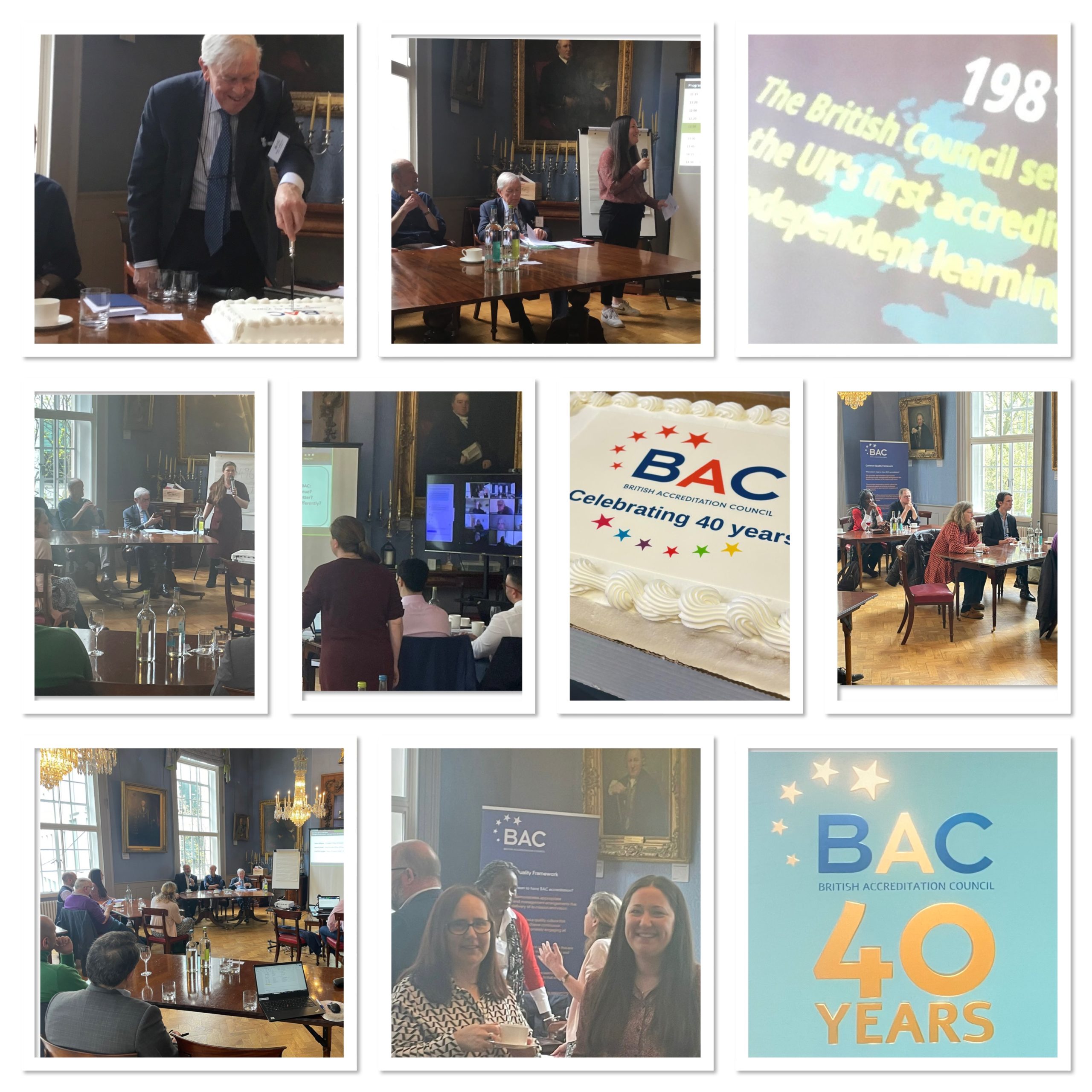 BAC was pleased to announce our five-year strategy at the hybrid annual stakeholder event, welcoming attendees in person at our new offices in Wax Chandlers Hall, and online via Zoom. With both internal and external speakers followed by a drinks reception the event provided an excellent opportunity to discuss the education sector in general and then BAC’s activities and objectives.
BAC was pleased to announce our five-year strategy at the hybrid annual stakeholder event, welcoming attendees in person at our new offices in Wax Chandlers Hall, and online via Zoom. With both internal and external speakers followed by a drinks reception the event provided an excellent opportunity to discuss the education sector in general and then BAC’s activities and objectives.
Invited as one of our keynote speakers, Sir Philip Augar, Chair of the panel on Post-18 Education and Funding Review gave the first address of the event, speaking about the synergy between further and higher education and the opportunities presented with the introduction of the Lifelong Loan Entitlement (LLE) in 2025. BAC accredited providers may find it of interest to consider what educational and vocational topics may be of interest to people wishing to utilise the LLE when it becomes available. At this stage the exact criteria and management of the LLE is not available but it is an exciting and needful development to ensure a continually upskilled workforce with opportunities to learn outside of the long-length degree programmes.
BAC is currently chairing the working group on micro-credentials for the European Association for Quality Assurance in Higher Education (ENQA). Prof Anca Greere discussed the main objectives of the group which includes mapping quality assurance approaches for micro-credentials across the European Higher Education Area (EHEA) and determining specific external quality assurance expectations for them. Surveys have been undertaken from the quality assurance agencies and utilising the responses from this the working group will be developing guidance for quality assurance of micro-credentials and there will be an online dissemination event on 22 September 2022. As micro-credentials are short, accessed, and certified courses of learning which should be portable and stackable, the diversification of learner profiles and the interest from the labour market in upskilling should result in new learners that could be enrolled by BAC accredited providers. BAC will continue to keep stakeholders updated on any developments around quality assuring micro-credentials.
Dr Bryan Maguire, the Director of Integration at Quality and Qualifications Ireland (QQI) provided a non-UK perspective of a tertiary education system. The quality assurance is undertaken by one agency, QQI, for both FE and HE and the sector is managed under the aegis of the Department of Further and Higher Education, Research, Innovation and Science. Within the UK, Wales is discussing the Tertiary Education and Research (Wales) Bill which would establish the Commission for Tertiary Education and Research, a single public body with responsibility for the funding, oversight and regulation of tertiary education and research in Wales.
The event then focused on BAC specific activities with a panel discussion with BAC trustees. BAC Chair of the Council, Dominic Scott OBE, highlighted the development of the strategy and how BAC will be investing in activities that will benefit BAC providers by providing a development fund. The annual report summary will be circulated to providers to give a more detailed overview of the finances and actions of BAC in the previous financial year. Honorary Treasurer Dr Stephen Jackson discussed the importance of ethical investments and the healthy financial position of BAC which allows us to fund initiatives from the investments. Accreditation Committee Chair, Dr Anthony Manning talked about his role as trustee and Chair of the Committee.
Four areas from the strategy that BAC is pleased to make stakeholders aware of are:
The liaison scheme: Following feedback from providers and inspectors around the need and type of advice and support required, BAC is introducing a liaison scheme. The scheme will provide advice and support to enhance and improve the provider’s ability to offer an excellent learning experience for learners and identify and develop their own solutions to quality improvement. There will be pilots between September – November 2022 with the initiative launched in 2023. Further information on the scheme will be made available on the BAC website. Please contact BAC to express an interest in taking part.
Overarching framework standards: BAC’s goal is to articulate an overarching quality statement under one umbrella framework which will apply across all BAC schemes and all BAC providers, without any immediate change to how individual schemes operate and without change to the status of accredited providers. Any updates relating to this will be circulated and feedback will be sought as always.
Marketing: BAC continued to encourage accredited providers to utilise their accreditation by using BAC marketing materials and ensure that they plug into BAC’s social media outlets, especially when celebrating their achievements and successes. BAC will be gathering more case studies and interviews to focus on good practice, proposing to analyse and research into outcomes of BAC inspections which will feed into a series of workshops and guidance notes. Where BAC is present at events and conference, we will seek to involve providers where possible and propose using video ‘talking heads’ on the BAC website to help build community, share best practice and create additional marketing collateral that can be used by those involved. If any providers would consent to be interviewed, please do contact hayley.boyes@the-bac.org .
Ethics: BAC has committed to ensure ethical investments and to increase sustainability, including reducing our carbon footprint. BAC has already made progress in this area due to the implementation of hybrid inspections and moving to remote meetings and remote working.
BAC will now be issuing digital certificates working with PrivySeal, a widely used digital credentialing platform whose mission is to make genuine membership, licensing, and qualifications highly visible and easily shareable. From September, paper certificates will no longer be issued automatically although can be provided on request. The use of the online certification is easy to use, easy to share and builds trust and confidence in accredited institution. A webinar and information session will be organised to provide more information on how this works, and the benefits of online certification.
Updates on BAC activities will continue to be sent via email and please do get in touch if you have anything you wish to share with the BAC community.


Leave A Comment